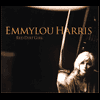Music |
Red Dirt Girl
Emmylou Harris
By
Published: Jan 01, 2005
Category:
Country
She’s made eight gold albums and three platinum albums, had five #1 hits, won nine Grammy awards — and yet there are Americans who love music who have never heard Emmylou Harris. Or if they have, they’ve decided they don’t like her. She’s country. She’s bluegrass. She’s…. something, and whatever it is, it can’t be classified, so the heck with her.
On the other side, there are music lovers who can name every one of those CDs. Who talk about Emmylou as if she were some kind of saint, an angel of celestial purity. A singer who can go from tenderness to tragedy in a single note. A writer of compelling songs who may live in Nashville but can’t be pigeonholed as country or bluegrass or anything.
I understand both positions.
It’s perplexing when an artist — musician or writer or painter or filmmaker — follows an impulse that has no easy hooks for us. And we don’t know how to deal with an attractive female celebrity who relies on her work for her success. Thirty years of being in the public eye, and there’s still no demeaning gossip connected to Emmylou Harris. There’s only her voice and her songs and her CDs and her concerts.
Which is what she intends. It’s all about the work. And then it’s all about the work the second time you hear it. And the tenth. And the hundredth — for the bet of her career is that hand-crafted music becomes an important and enduring part of your life.
But "hand-crafted" is a curious thing. One decade, it’s old-fashioned music from the hills; the next it’s a human hand on a mixing deck. In 1995, Harris released "Wrecking Ball," a CD of other people’s songs that sold surprisingly well. A big reason was the producer, Daniel Lanois, who has also worked with U2 and Peter Gabriel and Bob Dylan. Lanois likes electronics and spooky effects; "Wrecking Ball" made Harris’s voice distant and mysterious. It was a brilliant album — of kind. But although many of the songs are extraordinary, I do not play it often; it’s at once a new beginning and a dead end.
Wise friends told her that she needed to write her own material. Harris is not swift; it took her five years to write (or co-author) the dozen songs on her 29th album, "Red Dirt Girl." By then she had a new manager, a new producer and a new record company. And instead of singing the songs of others, she brought in great musicians — Bruce Springsteen and his wife, Patty Scialfa, and Dave Matthews — to sing her songs.
And what songs they are! If you are looking for cheerful, "elevator music" country, turn back. These are songs of choices made and prices paid, of longing and regret, and, always, of memory so acute you can’t lie about what happened.
Here’s Harris on "Red Dirt Girl," the title song:
I think this was hovering over the highway and I "drove over it." I an very, very inspired by the sound of words, and the names of places are so melodic and beautiful. I was passing through Meridian on my way down to record in New Orleans and that’s what started it. But what really took it over the edge for me was on a night off in New Orleans we went to see "Boys Don’t Cry". It unnerved me, not only because of the violence and homophobia, but also because of the underlying theme of how trapped those young people were. We all come into this world with so much potential and so many dreams. Who knows why some people escape and other people don’t? The key idea is in the lyric, "There won’t be any mentions on The News of the World."
What that becomes is a lament for "Lillian," the singer’s best friend, "two red dirt girls in a red dirt town/Just across the line and a little southeast of Meridian." Lillian tries to rise above her circumstances, but she can’t get out. She’s trapped by motherhood and marriage: "One thing they don’t tell you about the blues/When you got ’em/You keep on falling cause there ain’t no bottom/There ain’t no end/At least not for Lillian."
And then, the tragic end:
Nobody knows when she started her skid,
She was only 27 and she had five kids.
Coulda been the whiskey,
Coulda been the pills,
Coulda been the dream she was trying to kill.
But there won’t be a mention in the news of the world
About the life and the death of a red dirt girl
Names Lillian
Who never got any farther across the line than Meridian.
Of another song, she says:
This lyric is dealing with depression and angst and mortality. But I know that the place the song was going to get to was that there has to be a reason for the pain that everyone experiences. And I was so taken with the image of the pain that the oyster must go through with the grain of sand inside that becomes a pearl. That is the metaphor — your pain ultimately becomes something beautiful.
"There has to be a reason for the pain that everyone experiences" — that sentence sums up her career. And her appeal. She’s the one who knows the way out is to go through. Who accepts pain as a doorway to knowledge. Who grasps that hurt which can be articulated and shared is hurt that can be diminished.
"Red Dirt Girl" has no recording tricks. A few people. Recorded in a house. And a woman in her ’50s, singing better than you would think possible. Even if, as I do, you know her work well and love it very much.
To buy "Red Dirt Girl" from Amazon.com, click here.


